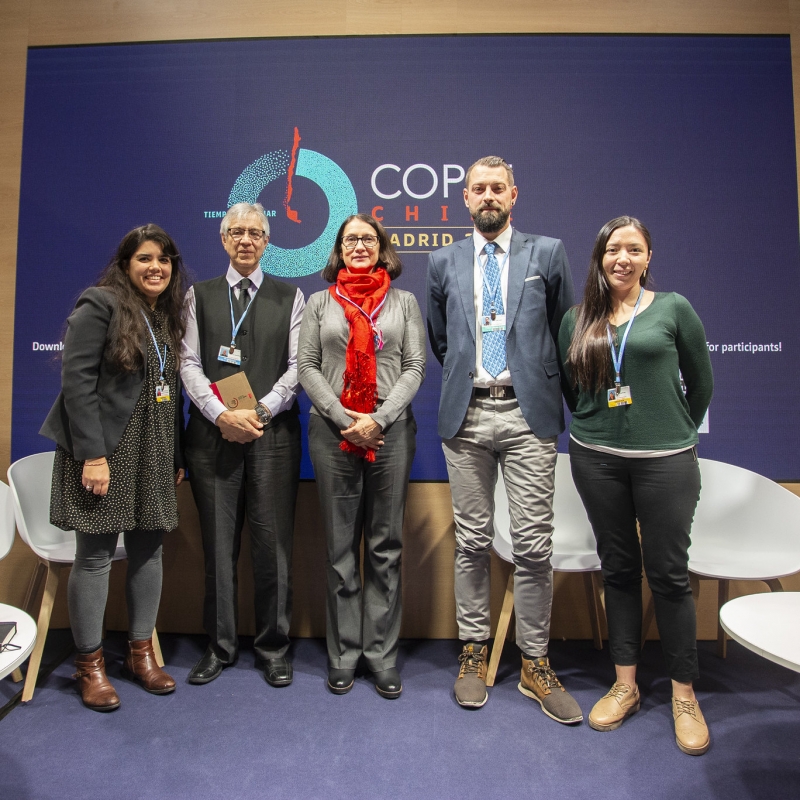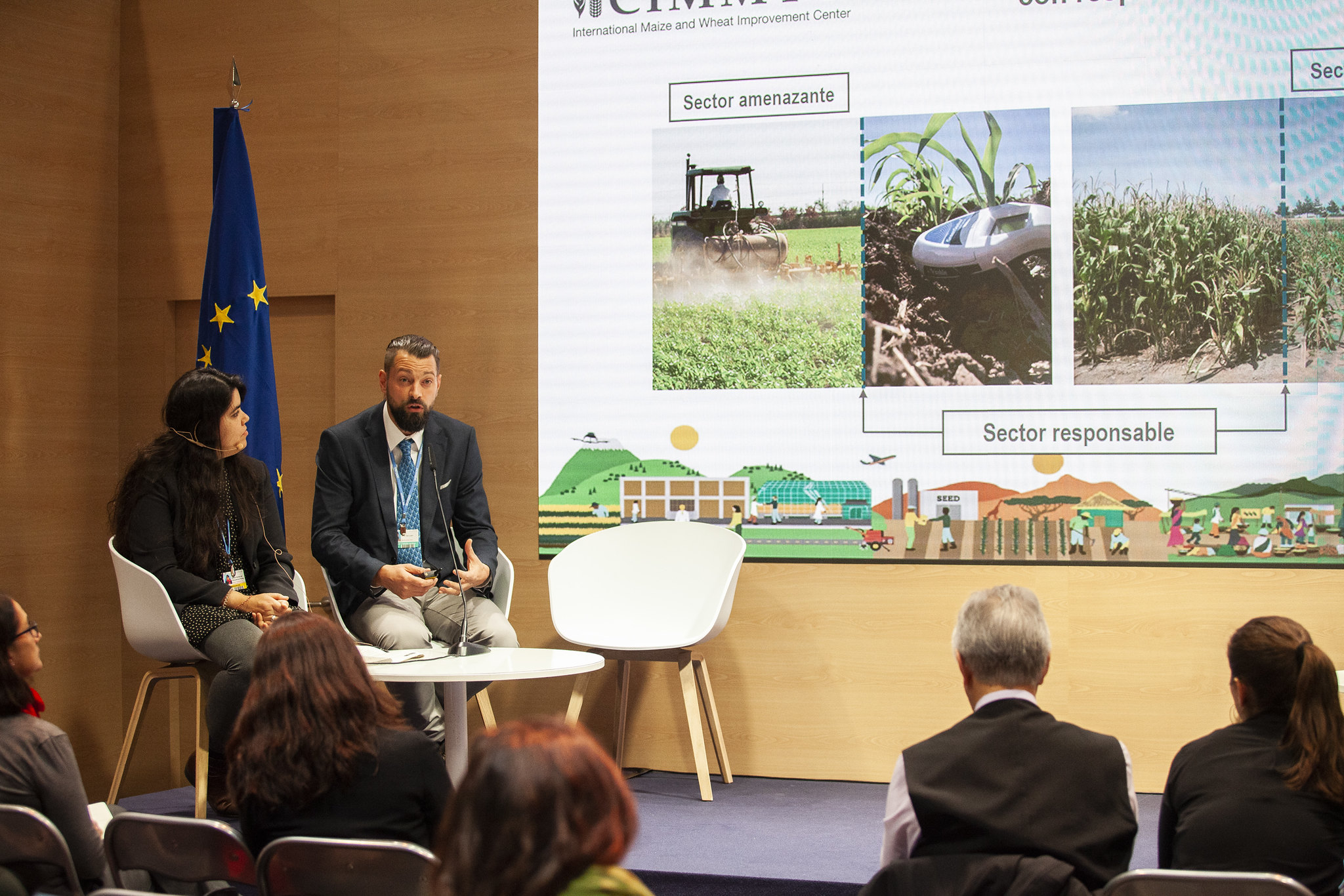Panelists:
- Sol Ortiz, General Director of Attention to Climate Change in the Agricultural sector, Ministry of Agriculture and Rural Development, Mexico.
- Deissy Martínez, Regional Coordinator for Latin America of the Research Program on Climate Change, Agriculture and Food Security, Consultative Group on International Agricultural Research (CGIAR), Colombia.
- Jelle Van Loon, Researcher at the Maize and Wheat Improvement Center (CIMMYT), Mexico.
- José Luis Samaniego Leyva, Director of the Sustainable Development and Human Settlements Division, Economic Commission for Latin America and the Caribbean (ECLAC).
Key Panel Messages:
- The topics addressed by the panelists focused mainly on 4 points:
- Inter-agency Coordination
- Productive improvement
- Knowledge Dialogue
- Economic valuation of biodiversity
- Climate change and biodiversity are two closely related aspects. The loss of biodiversity increases humanity’s vulnerability to climate change, and its conservation increases its resilience. For example, in the agricultural context, the ability of many producers to face longer droughts or the appearance of new pests depends on the genetic diversity of cultivated varieties where some will have characteristics of greater resistance to one or another problem.
- Mexico is home to 10% of the planet’s diversity. In germplasm banks, it protects seeds of 1300 species of native crops.
- The dialogue of knowledge between academics, producers and government is essential to develop agricultural practices that are more effective in the face of climate change uncertainty.
- It is urgent to strengthen the link between scientific knowledge and local knowledge.
- Biodiversity is a cultural issue. To the extent that markets recognize biodiversity, as well as the people who protect it, it can be used sustainably.
- It is necessary to use the purchasing power of the State to promote the consumption of native varieties.
- Appellations of origin, as well as labeling, allow adding value to products based on native varieties and small-scale productions.
- Appellations of origin imply a legal struggle, while labeling represents a simpler instrument of consumer information to apply.
- It is essential to give value to biodiversity and integrate it into the population’s diet.









